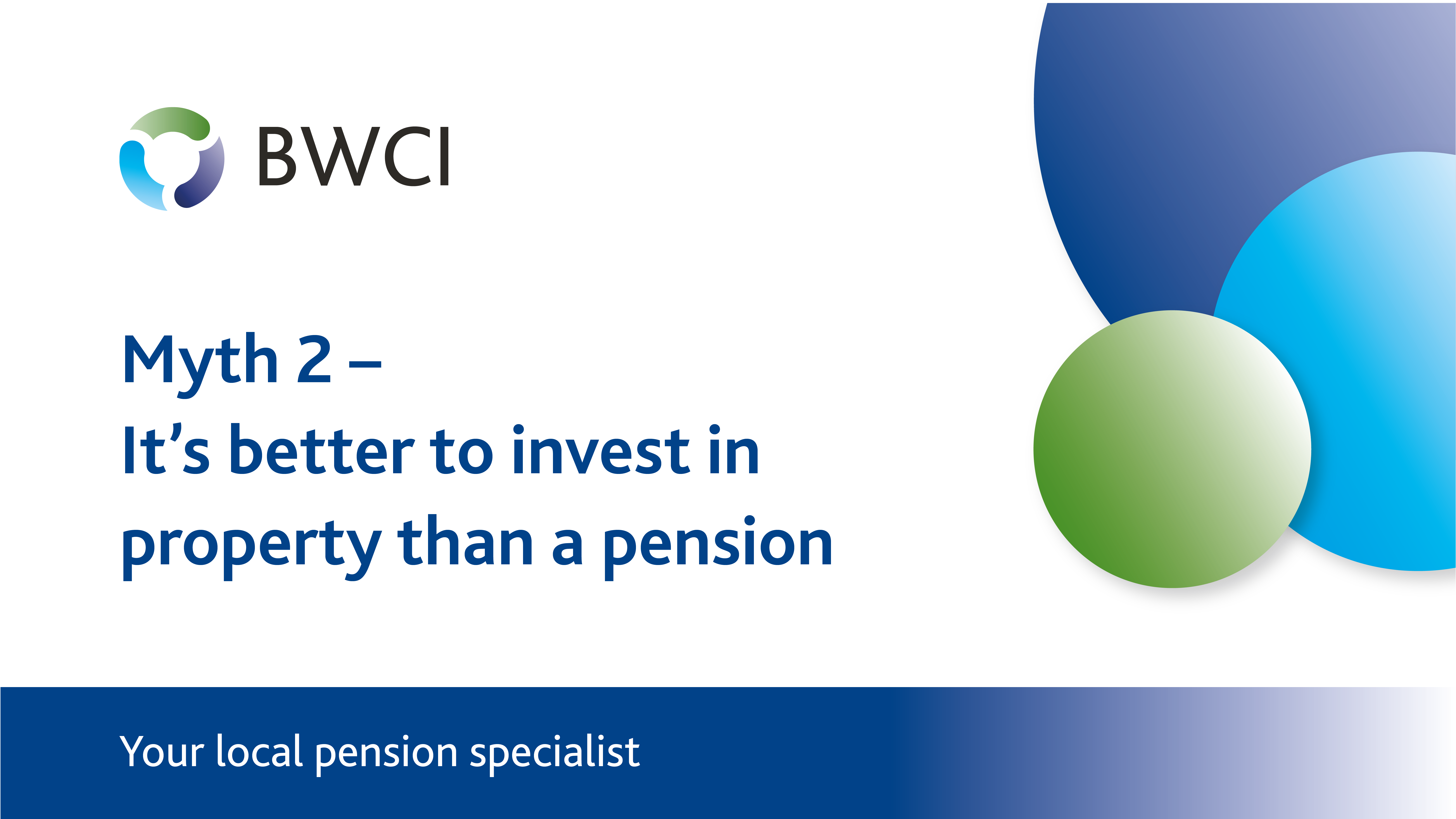
by John Martin
(Please contact John on 01481 728432 or email john.martin@bwcigroup.com
if you wish to discuss this article or anything relating to secondary pensions).
People often have misconceptions about retirement plans which can, unfortunately, end up damaging wealth in later years. That’s why we’re setting out some of the most commonly heard myths and explaining the reality.
The pensions industry is a fast-changing area and some of the myths have grown out of yesterday’s world when jobs for life and final-salary pensions were more customary.
We started the series last month with the myth that the States pension will be enough to enjoy a comfortable retirement.
And here’s my myth number two: It’s better to invest in property than a pension.
Bricks and mortar have been a very good investment over the last couple of decades. But it’s worth remembering that in the long-term, prices can go down as well as up. Interest rates have gone up recently, meaning that mortgages are not as cheap as they used to be.
Anyone using a buy-to-let property to fund their retirement cannot be sure that the investment will deliver a good enough return. And there are tax implications. The States wants to encourage people to save in pensions, so the tax system is set up around this. Pension contributions get tax relief (subject to certain limits). In contrast, property investments attract income tax, TRP, and stamp duty. It’s worth remembering as well that political winds don’t always blow favourably on buy-to-let property investments.
As well as the tax arrangements, if you are a member of a workplace pension scheme, you benefit from the employer’s contribution as well as your own. Even with a small pension pot, a professionally run investment fund makes it easier to have a broad spread of assets, rather than focusing on a single investment.
“My home is my pension” is a popular view, but you will still have living expenses when you retire. If you decide to put all your money into your own home you might eventually have to give up a chunk of ownership, or downsize, to free up cash. Downsizing comes with significant costs, such as estate agent fees.
There is also the issue of long-term care. Most people don’t like to think about this when they are young or middle-aged. But if you need to pay for long-term care when you are older to meet any co-payment/top-up fees it might seriously dent the inheritance you leave to family.
The mantra of not putting all your eggs in one basket is worth remembering when considering a pension versus property. If you have spare cash it can feel tempting to convert the loft or invest in a buy-to-let property rather than putting it into a pension. But don’t ignore all the advantages of the latter.
The great debate over pension versus property will probably run forever, but we hope this article has set out some realistic context.
We’re here to help. If you have any questions or would like to talk through the options in your particular circumstances, please call our pensions team on 01481 728432 or email pensions@bwcigroup.com.
BWCI Pension Trustees Limited, which is regulated as a pension provider by the Guernsey Financial Services Commission, offers a range of services to help employers meet their obligations under secondary pensions, ranging from our Blue Riband suite of positive retirement solutions to a fully bespoke arrangement.
If you want to find out more about our different pension products in Guernsey, you can speak to our experienced and trusted team on 728432 or email pensions@bwcigroup.com.

